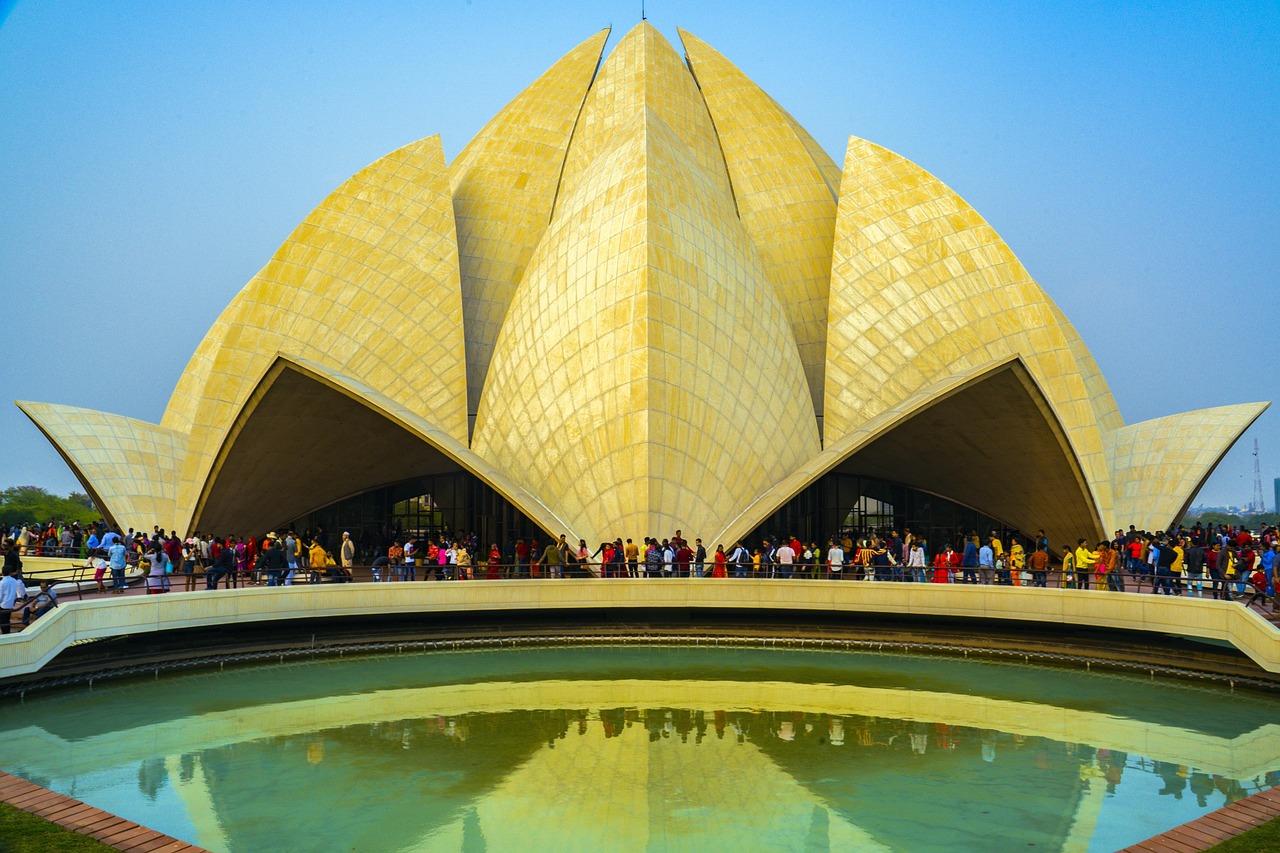
The Future of Travel: Predicting Trends for the Next Decade
The travel industry has always been a dynamic and evolving sector, shaped by technological advancements, consumer demands, and global events. As we move into the next decade, the landscape of travel is poised for significant transformation. In this blog post, we will explore the key trends that are expected to redefine travel, offering insights into how these changes will impact travelers and the industry alike.
Technological Innovations Driving Change
Technology continues to be a primary driver of change in the travel industry. Over the next decade, we can expect to see a greater integration of advanced technologies that enhance both the planning and execution phases of travel.
Artificial Intelligence and Machine Learning: AI and machine learning will revolutionize travel by providing personalized recommendations and improving customer service. From AI-powered chatbots offering instant assistance to predictive analytics that tailor travel itineraries, these technologies will make travel more convenient and customized.
Virtual and Augmented Reality: Virtual reality (VR) and augmented reality (AR) are set to transform the way travelers explore destinations. Before booking, travelers can take virtual tours of hotels and attractions, making informed decisions. AR can enrich on-site experiences by providing interactive guides and real-time information.
Sustainability and Eco-Friendly Travel
As environmental concerns continue to grow, sustainability will become a cornerstone of the travel industry. Travelers are increasingly seeking eco-friendly travel options that minimize their carbon footprint and support conservation efforts.

Carbon Offset Programs: Airlines and travel companies are expected to expand carbon offset programs, allowing travelers to compensate for their emissions. This will be complemented by innovations in sustainable aviation fuels and electric aircraft.
Eco-Conscious Accommodations: More hotels and resorts are adopting sustainable practices, such as using renewable energy, reducing water consumption, and eliminating single-use plastics. Eco-friendly certifications will guide travelers in choosing environmentally responsible accommodations.
Rise of Bleisure Travel
The blending of business and leisure travel, known as “bleisure,” is a trend that will continue to grow. As remote work becomes more prevalent, employees have the flexibility to extend business trips for leisure purposes.
Flexible Workspaces: Hotels and airports are adapting by creating flexible workspaces and offering amenities conducive to remote work. This includes high-speed internet, dedicated work areas, and business services.
Incentives for Extended Stays: Travel companies are incentivizing longer stays through discounts and packages that combine work and leisure activities, catering to the needs of bleisure travelers.
Health and Safety Protocols
The COVID-19 pandemic has underscored the importance of health and safety in travel. Moving forward, enhanced health protocols will remain a priority for travelers and travel providers.
Contactless Technology: To reduce physical contact, travel providers are implementing contactless technologies, from mobile check-ins to digital boarding passes. These innovations improve safety and streamline the travel process.
Health Certifications: Health certifications and travel insurance that covers pandemic-related disruptions will become standard. Travelers will seek destinations and services that prioritize health and hygiene.

Emergence of New Destinations
As traditional tourist spots become over-saturated, travelers are seeking out lesser-known destinations. This shift is driven by a desire for unique experiences and a growing awareness of over-tourism impacts.
Off-the-Beaten-Path Experiences: Travelers are exploring remote locations that offer authentic cultural interactions and unspoiled natural beauty. This trend supports local economies and reduces the pressure on popular sites.
Digital Nomad Visas: Some countries are introducing digital nomad visas to attract remote workers. These programs enable travelers to live and work abroad for extended periods, promoting cultural exchange and economic growth.
Takeaways
The future of travel promises to be an exciting journey of innovation and adaptation. As we look ahead to the next decade, the trends outlined in this post highlight a travel industry that is more personalized, sustainable, and inclusive. Whether through technological advancements, eco-friendly practices, or a focus on health and safety, the travel experience is set to evolve in ways that enrich the lives of travelers and support global communities.
For more insights into the future of travel, consider exploring resources like Travel + Leisure and other industry publications that delve into emerging trends and innovations.
Personalization and Customization
In the coming years, the travel industry is expected to place a heightened focus on personalization and customization, catering to the specific preferences and needs of each traveler.

Data-Driven Insights: With the increased availability of data, travel companies will leverage data analytics to understand customer preferences and create tailored travel experiences. This could range from personalized hotel room settings to customized itineraries that reflect individual interests.
Loyalty Programs: Enhanced loyalty programs will use personalization to reward repeat customers with unique perks and experiences. Personalized offers, such as exclusive access to events or custom travel packages, will drive customer loyalty and engagement.
Enhanced Connectivity and Transportation
The future of travel will also see significant advancements in connectivity and transportation, facilitating smoother and more efficient travel experiences.
Hyperloop and High-Speed Rail: The development of high-speed transportation systems like the Hyperloop and advanced rail networks will revolutionize travel, reducing travel times and connecting cities more efficiently. These innovations promise to make travel faster and more environmentally friendly.
Seamless Connectivity: Travelers will benefit from improved connectivity through innovations like 5G technology and better Wi-Fi access in transit hubs and on transportation modes. This will enable seamless communication and access to travel services on the go.
Cultural and Experiential Travel
As travelers seek out more meaningful experiences, cultural and experiential travel will gain prominence. This trend emphasizes immersive experiences that allow travelers to connect deeply with local cultures and communities.
Community-Based Tourism: Travelers will increasingly engage in community-based tourism, where they can participate in local customs and practices. This form of tourism fosters cultural understanding and provides economic benefits to local communities.

Experience-Focused Itineraries: Travel companies will design itineraries centered around unique experiences, such as culinary tours, art workshops, and cultural festivals. These offerings cater to travelers who prioritize experiences over traditional sightseeing.
Takeaways
As we stand on the cusp of a new era of travel, the forthcoming decade promises transformative changes that will redefine how we explore the world. From the integration of cutting-edge technologies to a renewed emphasis on sustainability and personalization, the travel landscape is evolving to meet the needs of the modern traveler. Embracing these trends will not only enhance the travel experience but also foster a more sustainable and inclusive global tourism industry.
For those eager to stay ahead of the curve, keeping an eye on resources like Condé Nast Traveler can provide valuable insights into the latest travel trends and innovations. By understanding and adapting to these changes, both travelers and industry stakeholders can look forward to a future of travel that is as enriching as it is exciting.
Influence of Emerging Technologies on Travel Safety
The next decade will witness the integration of emerging technologies that enhance travel safety and security, providing peace of mind for travelers worldwide.
Biometric Security Systems: Airports and border controls are increasingly adopting biometric systems for identity verification. These systems, which include facial recognition and fingerprint scanning, streamline security processes and reduce wait times while enhancing safety.
Blockchain for Secure Transactions: Blockchain technology promises to revolutionize travel transactions by providing secure, transparent methods for booking and payments. This technology can protect against fraud and ensure the authenticity of travel documents.
Impact of Geopolitical and Economic Factors

Geopolitical and economic conditions will continue to influence travel trends, affecting both destination desirability and travel accessibility.
Visa Policies and International Relations: Changes in visa regulations and international relations can open up new travel opportunities or impose restrictions. Travelers and industry players must stay informed about these shifts to adapt their plans accordingly.
Economic Conditions: Global economic fluctuations can affect travel budgets and consumer spending. In times of economic growth, travelers may opt for more luxurious options, while economic downturns may shift preferences toward budget-friendly travel.
Role of Social Media and Influencer Marketing
Social media and influencer marketing will continue to shape travel choices and inspire wanderlust, playing a key role in destination marketing.
Visual Storytelling: Platforms like Instagram and TikTok are powerful tools for visual storytelling, allowing travelers to share their experiences and inspire others. This trend will encourage destinations to leverage user-generated content for authentic promotion.
Influencer Collaborations: Travel brands are increasingly partnering with influencers to reach targeted audiences. Authentic collaborations can boost brand awareness and drive engagement, especially among younger travelers who rely on social media for travel inspiration.
Takeaways
The future of travel is an exciting frontier filled with opportunities for innovation and transformation. As we navigate the next decade, embracing emerging technologies, sustainable practices, and personalized experiences will be crucial to meeting the evolving expectations of travelers. By understanding these trends, both travelers and industry stakeholders can contribute to a future where travel is not only more accessible and enjoyable but also more responsible and inclusive.
For those looking to explore further, resources like Travel Weekly offer comprehensive coverage of industry trends, helping travelers and professionals alike stay informed and prepared for the exciting changes ahead.





